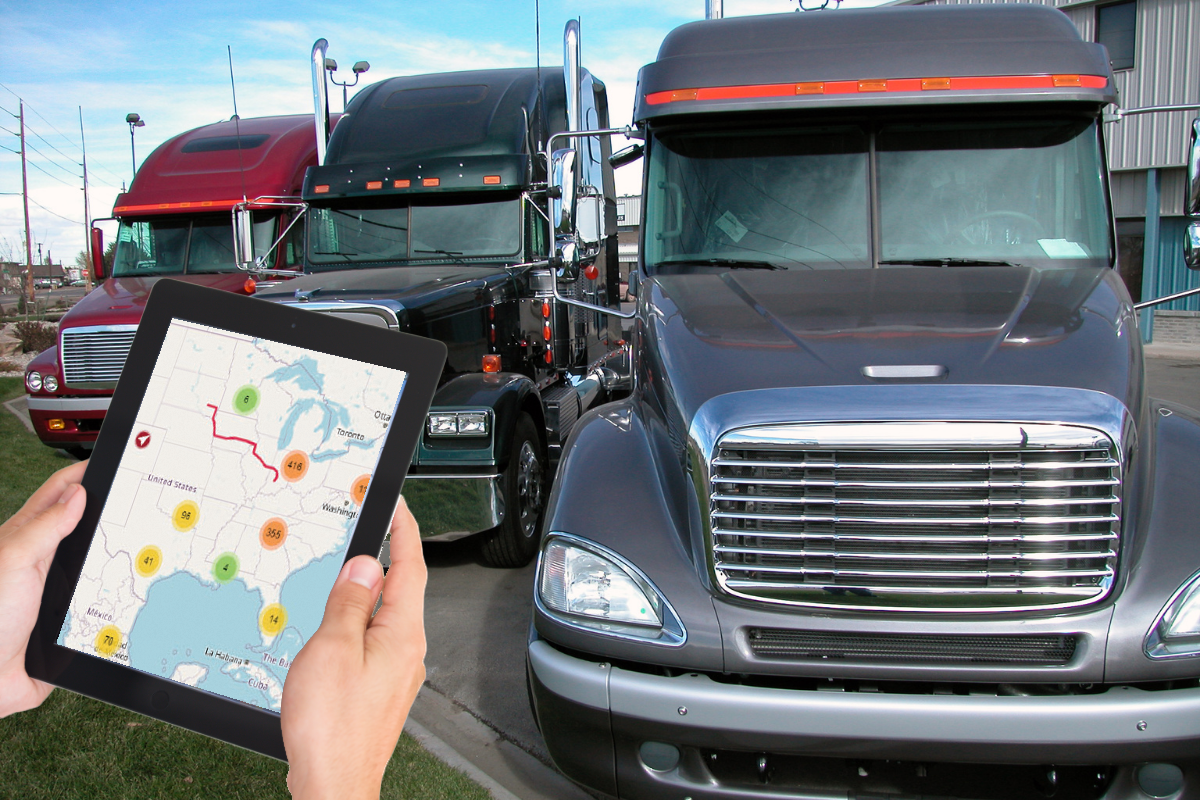Cross-border logistics is essential for trade across North America, connecting businesses and consumers in the U.S., Canada, and Mexico. It helps goods flow smoothly between countries, but it’s not always an easy process. With a mix of regulations, customs requirements, and transportation challenges, businesses often face hurdles when trying to expand their reach.
As e-commerce continues to thrive and global markets become increasingly interconnected, understanding cross-border logistics has never been more critical. Businesses must navigate a landscape filled with complexities while striving for efficiency and cost-effectiveness. In this article, we’ll delve into the current state of cross-border logistics in North America and explore the common obstacles that companies face daily. Join us as we uncover strategies to overcome these challenges so that your business can thrive in an increasingly competitive environment.
The Current State of Cross Border Logistics in North America
Cross-border logistics in North America is undergoing significant transformation. With increasing trade volumes between the U.S., Canada, and Mexico, companies face both opportunities and hurdles.
The integration of technology has improved efficiency. Real-time tracking systems help streamline supply chains. However, regulatory complexities remain a constant challenge for businesses trying to navigate the intricate web of customs requirements.
Moreover, geopolitical tensions can impact trade flows unexpectedly. Tariffs and trade agreements fluctuate, adding layers of uncertainty for logistics managers.
Environmental concerns also play a role in shaping logistics strategies. Companies are increasingly adopting sustainable practices to meet consumer demands and comply with regulations.
As e-commerce continues to rise, demand for swift cross-border shipping intensifies. Adapting to these changes will be crucial for businesses aiming to thrive in this dynamic market landscape.
Common Challenges Faced by Companies
Navigating cross-border logistics is fraught with challenges that can impact businesses significantly. One of the primary hurdles is compliance with varying regulations and tariffs in different countries. Each nation has its own set of rules, which can be confusing and cumbersome to follow.
Delays at border crossings also pose a substantial issue. These delays can result from inspections, paperwork errors, or even traffic jams. Such disruptions lead to increased costs and frustrated customers waiting for their shipments.
Language barriers add another layer of complexity in communication between partners across borders. Misunderstandings due to language differences can delay transactions and lead to costly mistakes.
Fluctuating currency exchange rates create unpredictability in budgeting costs related to shipping and receiving goods internationally. Companies must stay agile to mitigate these risks effectively while striving for efficient operations.
Impact on Supply Chains and Trade Relationships
Cross-border logistics plays a pivotal role in shaping supply chains across North America. A seamless flow of goods fosters stronger trade relationships, enhancing economic ties between countries.
Delays or disruptions at the border can ripple through the entire supply chain. Companies face increased costs and longer lead times, impacting their ability to meet customer demand. This often leads to strained business relationships and loss of trust among partners.
Moreover, regulatory differences complicate transactions. Companies must navigate varying customs requirements and tariffs, which can create friction in operations. Uncertainty around these regulations can deter businesses from pursuing cross-border opportunities.
In a highly interconnected market, maintaining robust communication is essential. Transparent dialogue helps build resilience against potential disruptions while solidifying partnerships across borders. Adaptability is key for companies wanting to thrive within this dynamic landscape of cross-border logistics.
Customs Brokers and How They Can Help
Customs brokers play a vital role in cross-border logistics. They act as intermediaries between businesses and government authorities, ensuring that shipments comply with all regulations.
Brokers are experts in tariffs, duties, and proper documentation needed for smooth transit across borders. Their knowledge helps prevent costly delays and ensures goods reach their destination on time.
Additionally, customs brokers stay updated on changes in trade agreements and regulations. This adaptability is crucial in an ever-evolving landscape where policies can shift rapidly.
By leveraging their expertise, companies can focus more on core operations rather than getting bogged down by compliance issues. The right broker becomes an invaluable partner, streamlining processes that might otherwise overwhelm unprepared businesses.
Strategies for Overcoming Cross-Border Challenges
- To tackle cross-border logistics challenges, companies should prioritize technology integration. Utilizing advanced software can streamline processes and enhance visibility throughout the supply chain.
- Building strong relationships with local customs brokers is essential. These experts understand regional regulations and can expedite clearance times, reducing delays significantly.
- Investing in employee training also pays off. A knowledgeable team will navigate complexities more efficiently, improving overall operations.
- Regularly reviewing compliance practices ensures that companies stay updated on changing laws. To ensure smooth and compliant shipments, businesses can turn to resources like U.S. Customs and Border Protection, which offers up-to-date information on regulations and best practices for shipping across the border. This proactive approach minimizes risks associated with non-compliance.
- Diversifying transportation options provides flexibility during disruptions. By having multiple carriers or routes available, businesses can adapt swiftly to unforeseen circumstances without major setbacks.
Future Predictions and Solutions
- The future of cross-border logistics in North America is poised for transformation. With advancements in technology, companies will increasingly leverage artificial intelligence and blockchain to streamline processes. These tools can enhance transparency and efficiency, reducing delays at borders.
- Sustainability will also take center stage. Businesses are likely to adopt greener practices, using electric vehicles and optimizing routes to minimize their carbon footprint. This shift could attract environmentally conscious consumers.
- Customs regulations may evolve as governments strive for better trade facilitation while ensuring security. Enhanced collaboration among nations could lead to harmonized standards that simplify compliance.
- Moreover, the rise of e-commerce continues to reshape logistics demands. Companies must adapt swiftly to meet customer expectations for speed and reliability on international deliveries.
- Agility will be key in navigating these changes effectively. Companies that embrace innovation stand a greater chance of thriving in this dynamic landscape of cross-border logistics.
Looking Ahead
Cross-border logistics in North America presents a complex yet vital aspect of international trade. Navigating the challenges requires resilience and innovation from businesses aiming to thrive in this dynamic landscape. As companies confront various hurdles, such as regulatory compliance, transportation delays, and customs documentation complexities, it becomes increasingly clear that strategic partnerships and expert guidance are essential.
The role of customs brokers cannot be underestimated. These professionals streamline processes and ensure adherence to regulations, reducing the risk of costly errors or delays. Their expertise can significantly enhance efficiency across supply chains while fostering strong trade relationships.
Embracing technology will play a crucial role in overcoming existing obstacles within cross-border logistics. Investment in advanced tracking systems and data analytics could facilitate better decision-making for shippers and carriers alike.
When it comes to handling the complexities of cross-border logistics, Native American Logistics (NAL) is the partner you can rely on. With extensive experience and a deep understanding of the challenges involved in shipping across North American borders, NAL ensures that your shipments are managed efficiently and effectively. From compliance management to smooth coordination between carriers, we offer the expertise and solutions that make cross-border logistics seamless. Let NAL handle the details so you can focus on growing your business.

Jeff Berlin
is the Chief Operating Officer of E.L. Hollingsworth & Co. and serves as the Senior Operations Executive for TOP Worldwide and Native American Logistics. With over 30 years of experience leading logistics and trucking companies, he brings deep industry expertise to his role. Jeff is also a CDL-A driver and a private pilot. Contact Jeff at jberlin@elhc.net.
 +1 877 781 3006
+1 877 781 3006 (52) 554-870-5682
(52) 554-870-5682




